Mozart
Così fan tutte
Programme
SUPPORTED BY THE ROBERTSON TRUST AND SCOTTISH OPERA’S EMERGING ARTISTS BENEFACTORS
Wolfgang Amadeus Mozart
Così fan tutte
Opera buffa in two acts by Wolfgang Amadeus Mozart
Libretto by Lorenzo da Ponte
First performed at the Burgtheater, Vienna, on 26 January 1790
Sung in Italian, with English subtitles
English subtitles translation by Jonathan Burton
Audio Description by Jonathan Penny
Concert performance, filmed as live at the Theatre Royal Glasgow under appropriate social distancing restrictions
Welcome
Welcome to this special digital concert staging of Mozart’s Così fan tutte, filmed live at the Theatre Royal Glasgow.
Scottish Opera’s Staff Director Roxana Haines (who last directed our successful outdoor La bohème in September) reimagines Mozart’s exuberant comedy in the light of reality television and game shows, in which lovers’ loyalties are put to the test.
This performance offers the first opportunity for our outstanding 2020/21 Emerging Artists – soprano Catriona Hewitson, mezzo-soprano Margo Arsane, tenor Shengzhi Ren and baritone Arthur Bruce – to shine together in a full opera. They are joined by former Emerging Artist Charlie Drummond, and Glasgow-born bass-baritone Michael Mofidian. Scottish Opera Music Director Stuart Stratford conducts The Orchestra of Scottish Opera, and a small chorus of singers who we’ve been able to bring together for the first time since lockdown.
We remain absolutely committed to returning to live performance as soon as we’re able to, and in the meantime, this digital production has been created according to current guidance from the Scottish Government.
We thank the Scottish Government for its ongoing core funding.
Everyone involved hopes that you enjoy this very special performance.
Alex Reedijk
General Director
Cast
Fiordiligi
Charlie Drummond
Dorabella, sister of Fiordiligi
Margo Arsane
Scottish Opera Emerging Artist 2020/21
Ferrando, Dorabella’s boyfriend
Shengzhi Ren
Scottish Opera Emerging Artist 2020/21
Guglielmo, Fiordiligi’s lover
Arthur Bruce
The Robertson Trust Scottish Opera Emerging Artist 2020/21
Don Alfonso, game show host
Michael Mofidian
Despina, the women’s personal assistant
Catriona Hewitson
Scottish Opera Emerging Artist 2020/21
Creative Team
Conductor
Stuart Stratford
Concert Staging
Roxana Haines
Film Director
Jonathan Haswell
Repetiteur and Vocal Coach
Fiona MacSherry
Audio Producer
Derek Clark
Biography: WOLfgang amadeus mozart
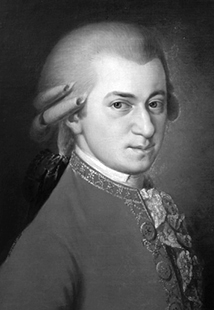
Born: Salzburg, 1756. Died: Vienna, 1791
Wolfgang Amadeus Mozart is known the world over as a child prodigy, and was heavily promoted as such by his father Leopold during his earliest years. And with good reason: he composed his first symphony at the age of nine, his first piano concerto at 11, and his first opera at just 13.
In terms of opera, however, it wasn’t until the composer was approaching his 30s (and therefore, though he didn’t know it, near the end of his brief life) that Mozart created the mature works that we particularly admire today, notably his trio of operas with librettos by the Venetian writer Lorenzo Da Ponte: The Marriage of Figaro (1786), Don Giovanni (1787) and Così fan tutte (1790).
Though born in Salzburg, and initially employed by the city’s Prince Archbishop Hieronymus Graf Colloredo, Mozart felt his talents did not receive the recognition they deserved there and in 1781 he resettled in Vienna, made the musical capital of the 18th-century world by the court of arts connoisseur Emperor Joseph II. Though Mozart had his financial struggles as a freelance composer and performer, he nonetheless managed to make his reputation in the city at a time of revolution and war that caused significant problems right across the arts.
Despite dealing with periods of intensive work, financial pressures and mental stress, Mozart completed some of his most admired and sophisticated works – including the Singspiel The Magic Flute, the Clarinet Concerto and the unfinished Requiem, as well as Così fan tutte – during the last years of his life. The cause of his death in December 1791 is uncertain, though there’s no evidence to suggest he was poisoned by fellow composer Antonio Salieri, despite persistent rumours since the decades following his death, as well as the plot line of Peter Shaffer’s 1979 play Amadeus and the subsequent film by Miloš Forman.
Synopsis
ACT I
Don Alfonso challenges Ferrando and Guglielmo to a bet: that their lovers – the sisters Dorabella and Fiordiligi – will not remain faithful to them. The two young men pretend to leave for war, only to return in disguise. They set about seducing each other’s lover, but initially get nowhere. Claiming to despair at the women’s lack of interest, the men pretend to poison themselves, but the maid Despina – who’s also in on the game – disguises herself as a doctor to bring them back from the brink of death. Under all this emotional pressure, Dorabella and Fiordiligi find their affections wavering.
ACT II
Despina tells the sisters that there’s nothing wrong with a bit of harmless flirtation. Alone with Guglielmo, Dorabella quickly gives in to his affections. Fiordiligi is less convinced, threatening to run to her lover on the battlefield, but in the end gives in to Ferrando too. With both women apparently seduced, the two men are quietly distraught. The sisters are keen to marry their new lovers immediately. Despina dresses up as a lawyer and does the honours. The two new husbands suddenly disappear, however, and Ferrando and Guglielmo apparently return from battle, horrified at what’s been happening. Dorabella and Fiordiligi are embarrassed by their actions, but the two men also realise that their game wasn’t without its risks. The charade is revealed, and Don Alfonso urges the four young lovers to learn their lesson.
Note on the concert staging
In many ways, Così fan tutte is the perfect piece for our current times: it has a small cast and beautiful music, and it’s light-hearted to entertain audiences. But in other ways, this project has posed tricky questions, too.
How do we implement a socially distanced staging, for example, in an opera famous for its physical comedy and speedy costume changes? Officially, this is a concert staging, so how do we tell a story in 4m x 12m of space while the orchestra is present on stage behind us? We’re very pleased to welcome back chorus singers, but for all those spatial reasons they can’t be on stage with us for the performance. Can they be in a different part of the theatre, and if so, how do they add to the storytelling and still feel part of the action? And the cherry on top of this cake of questions is that all of this is happening within an unconventional medium. We’ll be capturing the work through a lens while we can’t invite live audiences into the Theatre Royal Glasgow. It’s a blessing to be making work, but it cooks up the aforementioned cake of questions nonetheless.
After reacquainting myself with the joys of Così fan tutte, I first tried to rationalise the camera. With a lens, you can present detail and play with perspective in particular ways, and I began thinking about that in context of the opera. The proposition in the first scene is that we are in a sort of social experiment: will the men agree to woo each other’s partner (in disguise) to discover if the women will be faithful?
Then the form of film merged with the content of this social experiment, and I began thinking about reality TV shows. There are Don Alfonso characters in our living rooms all the time, setting ridiculous challenges, pulling pranks, deceiving contestants… and we love watching them do it. Think of Ant and Dec’s Saturday Night Takeaway, the ‘unexpected stars’ of Michael McIntyre’s Big Show, Graham Norton’s humour, every American late-night TV host, and even Derren Brown, who often ventures into psychologically manipulative territory. Don Alfonso is an amalgamation of all these figures. The men in our story merely sign up for this experiment to see if their lovers are faithful or not, and we watch to see if they can catch them out in real time... along with the ‘live studio audience’, aka our choristers in the dress circle.
Presenting Così fan tutte today raises many other questions beyond the technical ones. What is infidelity? Is this game morally sound? Why are we still presenting an opera about women being manipulated when there’s no justice whatsoever for them? The only peace I have found here is that audiences before us have found the content challenging, too. Maybe that’s exactly what it’s supposed to be, asking us why these issues are still present in our society, and reminding us to do something about them.
Roxana Haines
Concert Staging
Programme note: Così fan tutte
Mozart’s comedy of deception and (in)fidelity is one of his most provocative creations, but it’s also his most relevant opera to our own times, argues David Kettle
In terms of insight, sophistication, character depth and sheer musical beauty, Così fan tutte counts undeniably as one of Mozart’s greatest operatic achievements. But it’s also an undeniably problematic work for modern audiences.
The questions start with the title itself. It might sometimes be glossed as The School for Lovers, the alternative title originally supplied by librettist Lorenzo Da Ponte. But in its most basic form – translated roughly as ‘All women are like that’ – the opera’s name poses problems before we’ve even heard a note of its music. Should we simply see the opera as being of its time? That’s a common defence for works that begin to show their difficulties as social attitudes change (even if the story that Così fan tutte tells actually stretches back centuries). Yet in many ways, Così fan tutte is also the opera by Mozart that’s most relevant and resonant to 21st-century audiences – perhaps because of the very problems it raises.

A lukewarm opening
Not much is known about Così fan tutte’s origins. Mozart began writing it in 1789, as his third collaboration with the Venetian poet and librettist Da Ponte, following the great successes the pair had already achieved with The Marriage of Figaro and Don Giovanni. It was premiered on 26 January 1790 at Vienna’s Burgtheater, but had only a handful of performances before the run was cut short by the sudden death of Emperor Joseph II, and the ensuing period of mourning. When Così fan tutte re-emerged for a second run a few months later, its momentum had stalled, and it didn’t make much of an impact.
Nonetheless, it was clearly a work that mattered to Mozart, for both financial and artistic reasons. At the time he was writing it, Austria, alongside its ally Russia, was at war with the Ottoman Empire (and in the context of that conflict, Così fan tutte’s plot line involving two men suddenly being called up to fight must have felt very real, and very immediate). As a result of the Austro-Russo-Turkish conflict’s fallout across Viennese society, and in common with our current pandemic times, every work opportunity for a struggling freelance musician was something to be treasured. But income aside, Mozart was concerned enough about Così fan tutte’s artistic ambitions to invite his friend and colleague Joseph Haydn to a private performance in his home in December 1789. The more senior composer’s reaction, sadly, isn’t known.
Following its rather lukewarm reception during Mozart’s lifetime, Così fan tutte had relatively few performances in the 19th and early 20th centuries. It was considered somewhat distasteful and frivolous, even immoral, and in any case was entirely out of line with Romantic ideals of undying passion, all-consuming love. What performances of it there were often employed a whole new storyline and libretto in an attempt to circumvent Da Ponte’s sardonic game of affections. In one version, the two sisters Dorabella and Fiordiligi get to know of their lovers’ deceptions at the start of Act II, casting an entirely different light over the rest of the work.
Ancient partner swapping
It’s ironic, however, that Così fan tutte was looked upon so witheringly, since its themes of disguise and partner-swapping actually date back to antiquity. In his Metamorphoses, Ovid recounts the tale of Procris, whose husband Cephalus is persuaded to attempt to seduce her while disguised as another man, goaded on by goddess of the dawn Eos, whose attentions Cephalus spurned while out hunting. In the seventh day of his Decameron, Boccaccio tells of a husband disguising himself as a priest to hear his wife’s confession – in which she reveals that she loves another priest who comes to visit her every night. Even in Shakespeare’s A Midsummer Night’s Dream, disguise in the form of magical transformations and love potions tests and disrupts existing relations between a quartet of humans and a couple of royal fairies.

Precedents in historical literature aside, however, there’s no getting away from the fact that, at least on certain levels, Così fan tutte is a deeply unsavoury creation. Eminent critic and musicologist Joseph Kerman wrote: ‘Even the most devout Mozartian will have to admit that there is something unsatisfactory about Così’, going on to call it ‘Mozart’s most problematic work’. Perhaps in an attempt to let Mozart off the hook, critics down the ages have blamed that unsatisfactoriness on what they see as a gaping chasm between the composer’s sophisticated, warm, emotional music and the icy cynicism of Da Ponte’s libretto. They have a point – and despite little evidence of how the two men actually worked on the opera, it seems that Mozart had scant input into the libretto, simply setting what Da Ponte gave him. Nonetheless, it’s indisputable that it was Mozart, not Da Ponte, who chose the opera’s contentious title.
Music versus libretto
So on the face of it, we might imagine Mozart attempting to inject some human warmth and compassion into Da Ponte’s rather unpalatable storyline through his deeply expressive music. But are things really as simple as that? In basic terms, Mozart and Da Ponte show us two apparently happy couples – Dorabella with Ferrando, and Fiordiligi with Guglielmo – and the attempt by Don Alfonso, for reasons that are never entirely clear, to demonstrate how easily the women will be unfaithful to their partners. Dorabella and Fiordiligi do indeed seem to be very much in love with their other halves, and understandably concerned about the idea that the two men might be whisked off to war and lose their lives in battle. But if that’s really the case, it seems strange that there isn’t a love duet for either of the original couples near the start. Maybe we’re meant to take their affection as read, or maybe Mozart and Da Ponte simply want to move us on into the intrigues of the opera’s later plot.
Even so, it’s a peculiar omission – especially since, once Ferrando and Guglielmo return in disguise to seduce the women, Mozart supplies us with warm, heartfelt, emotionally convincing love music for the new couples. ‘Il core vi dono’ (‘I give you my heart’), the Act II duet between the disguised Guglielmo and Dorabella, is fragile, tender and beautiful. Most importantly, it feels entirely authentic: the two lovers’ vocal lines copy each other precisely, and frequent pauses conjure a sense of uncertainty and anticipation. Later, Mozart writes Fiordiligi’s doubts at surrendering herself to her desires for the disguised Ferrando directly into their turbulent duet ‘Fra gli amplessi in pochi istanti’ (‘Very soon I’ll be in my lover’s arms’). The love between them by the end of the duet feels all the more real and urgent for being so hard-fought and contested. At the beginning of the opera, the music for the two original couples sounds excited, enthusiastic, full of the eagerness of youth, but it hardly conveys the depths of emotion, honesty and vulnerability that Mozart explores in Act II. It’s almost as if his characters are in love with the idea of being in love at the start, only to discover its true meaning after the interval.
Even the voices Mozart calls for tell the same story. It feels unnatural and unlikely that tenor Ferrando could hitch up with mezzo Dorabella, and the same for soprano Fiordiligi and baritone Guglielmo. Musically, those matchings are all wrong – which Mozart clearly knows, and knows that his audience knows, since the original couples don’t even come together for duets at the start of the opera. Put Fiordiligi’s soprano with Ferrando’s tenor, and Dorabella’s mezzo with Guglielmo’s baritone, however, and it all makes sense. It’s almost as if, through the music he writes for his quartet of lovers, and through the very voices he uses, Mozart is highlighting contrasts between a formal, conventional, accepted perception of love, and something truer, rawer and more natural. And if interrogating accepted conventions isn’t something that chimes with the Enlightenment beliefs that Mozart espoused, then few things are.

A passion for acting
Delving deeper still, however, there are also questions as to how much everyone in the opera is acting. Performance, of course, is central to the opera’s core plot line, in Ferrando and Guglielmo’s apparent departure and their return as different people. And unless we conclude that their feelings towards their new partners are real, or perhaps become real over time, we might assume the men are acting, too, when they attempt to seduce Dorabella and Fiordiligi. This whole set-up raises questions, however, about Ferrando and Guglielmo’s own motivations. Why are they so happy and eager to gamble with their partners’ affections following a simple prompt from a stranger? Are they really so gullible and cold-hearted as to want to demonstrate and defend their partners’ fidelity by attempting to break it? Or were they perhaps pretending in their feelings, even if they didn’t know it, all along?
Stepping back from the four lovers, Don Alfonso and Despina seem to exist on a separate level. He is the scheming mastermind behind the whole affair, even if we never fully understand what his purpose has been. Even that seems intentional: Mozart denies Don Alfonso any extended solo arias, so we never really get inside his head. Despina joins him as a willing collaborator: motivated by money, and a chance to get one over on her demanding mistresses, she’s apparently content to betray her own sex to help Don Alfonso prove his point, and oils the wheels of his intricate mechanism of scheming and deception.
Stepping back even further, behind Don Alfonso and Despina are the figures of Mozart and Da Ponte, who bring this dramatic and musical conundrum to the stage, and employ Don Alfonso and Despina as their surrogates to slide the pieces around the chessboard. And, most importantly, it’s Mozart and Da Ponte who also make their audiences down the centuries complicit, as both voyeurs and judges in this problematic game of deception and betrayal.
Changing tastes
You can probably see where this is going. For what else could make Così fan tutte such a fitting work for our own, voyeuristic times, where we encounter relationships being tested and trials being set daily on primetime television? We’ve become desensitised to them now, of course, but some of the activities we encounter in reality TV series or game shows would never have made it to the screen just a few decades back. But with relationships being initiated, cemented and blown apart, and identities dissected and judged in front of us every day in our living rooms, perhaps it’s only fitting that we should apply similar perspectives to an age-old story. Furthermore, as reality TV participants become increasingly aware of the genre’s mechanisms and conventions, so they increasingly become actors, performing rather than simply conveying their own personalities and lives, and thereby providing yet another parallel with Così fan tutte’s many levels of artifice and acting.

Even if that’s the case, however, where does it leave the opera’s conclusion? Traditionally, the original couples get back together, and Don Alfonso warns them to learn from their experiences. But can anything really be the same after what they’ve been through? You might conclude that it’s more a case of a return to acting, and either pretending that nothing has happened, or attempting to recreate the blinkered happiness of the opera’s opening. Occasionally, directors have left the couples swapped at the opera’s end – a more provocative conclusion, certainly, but one that still leaves many questions unanswered.
By the time they wrote Così fan tutte, Mozart and Da Ponte already had form in dealing with problematic subject matter. In their previous collaboration, Don Giovanni, they depicted what we’d probably now call a serial rapist as a mischievous womaniser – but crucially, they also provided a cathartic balance to his catalogue of crimes with his plunge into hell as the ultimate punishment. In Don Giovanni, there’s a sense of symmetry and resolution. In Così fan tutte, however, there’s nothing of the sort. We’re left up in the air, reflecting on the ethics of what’s happened in front of us, and our own complicity. Perhaps that’s what makes it Mozart’s most forward-looking, provocative opera – and yes, probably his most problematic.
David Kettle is Scottish Opera’s Programme Editor. He is also a music critic for the Scotsman and the Daily Telegraph, and has written about music for a broad range of publications including Classical Music, The Strad, The List, the Times and BBC Music Magazine.
Article: Opera and reality television
It might seem unlikely, but there are many parallels between the operatic stage and the world of reality TV – similarities that Mozart’s Così fan tutte brings to the fore, as Ruth A Deller explains
At first glance, opera and reality television might seem like unlikely bedfellows. They have, however, crossed over many times. In Jerry Springer: The Opera, inspired by the 1990s US talk show hit; and in ITV’s Popstar to Operastar, in which pop stars turned their hands to singing in a new way (whose two series, funnily enough, were won by former reality stars Darius Campbell-Danesh and Joe McElderry); and in Channel 4’s Operatunity, which documented a talent search by English National Opera. Numerous opera singers have taken part in talent shows, the most famous of whom is probably tenor Paul Potts, winner of Britain’s Got Talent in 2007. One of the most notorious examples of opera meeting reality TV was The House, a BBC fly-on-the-wall series from 1996 that received much press attention (and plenty of criticism) for its at times unflattering portrait of life behind the scenes at London’s Royal Opera House.
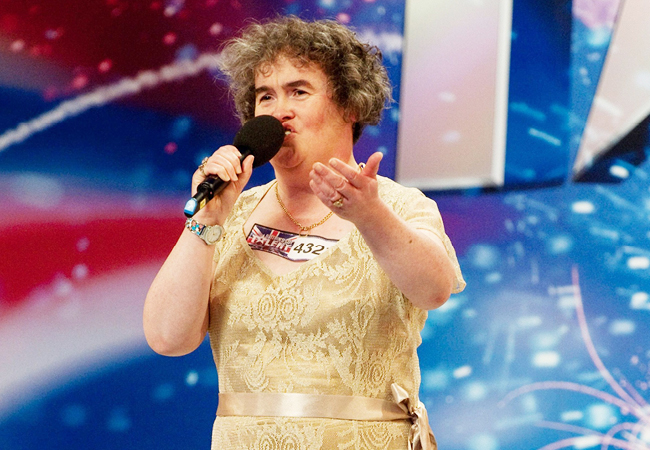
The two genres also have more in common than you might think. Big reality TV moments such as the confrontation with ‘Nasty Nick’ in the first series of the UK’s Big Brother, The Great British Bake Off’s 2014 ‘bingate’ controversy, or the unexpectedly triumphant Britain’s Got Talent audition by Susan Boyle (pictured above) are the genre’s equivalent of show-stopping operatic set pieces. Colourful, tragic characters like Big Brother’s Jade Goody and Tiger King’s Joe Exotic (pictured below) are as vibrant as any operatic roles. And at heart, both opera and reality television are ultimately concerned with people – how they feel, how they love and how they behave, especially when in extraordinary circumstances.
When people learn I’ve written a book about reality television, there are two things they usually ask. First: ‘Isn’t it all fake anyway?’ And second: ‘Why do people watch it?’ These questions reveal a lot about people’s prejudices towards a genre that has in fact been much maligned. Like opera, reality TV is often misunderstood by its sceptics, who might feel it’s ‘not for them’ – even if they’ve never actually watched it.
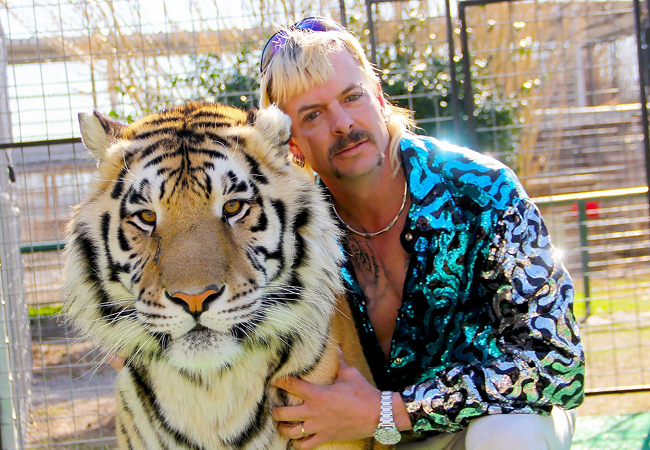
What is reality TV anyway?
It’s impossible to pin down the precise origins of reality television, though some argue its roots go back as far as Candid Camera and Seven Up! in the mid 20th century. The term emerged within some academic and journalistic accounts in the 1990s following the advent of emergency shows like 999, and docusoaps such as Airport, but it was around the turn of the millennium that the term, and the genre, really took off, with mega-hit franchises including Big Brother, Pop Idol and Survivor.
We now see reality TV used as a term to describe a broad range of factual television, including talent shows, fly-on-the-wall documentaries, social experiments, dating and makeover shows, to name just a few. However, there’s also a lot of snobbery around the term – look on streaming services BBC iPlayer, All4 or ITVHub and you’re more likely to see these shows categorised as ‘lifestyle’, ‘factual’ or ‘entertainment’ than as reality TV.
The idea of the ‘real’ in reality television is hotly debated, and varies from show to show. A docusoap format such as Educating Greater Manchester might be concerned with what ‘real’ life in a school looks like, but I’m a Celebrity… Get Me Out of Here! is more concerned with how celebrities ‘really’ look and behave when taken out of their comfort zones. Regardless of format, all reality programmes have at their hearts the idea of revealing people’s ‘real’ characters, whether through putting in the hours of training needed to pull off a perfect Viennese waltz on Strictly Come Dancing, choosing which of their housemates to nominate for eviction in Big Brother, or deciding who to couple up with on Love Island.

Why do we care?
There are, no doubt, as many reasons for watching reality TV as there are viewers. Will we see someone we know? (I have, several times, and I bet many of you have, too). Will we learn something about people, places or practices previously unknown to us? Will we be inspired to sing, bake, dance or sew? Will it give us strategies and tips to make over our diet, appearance, home or business?
And at the heart of most reality shows is the question of how people will behave. Will they bake a beautiful cake? Will they fall in love? Will they play by the rules, or cheat? Will they find new strength under pressure, or will they crumble? By extension, we wonder how we might respond ourselves in similar circumstances.
Already we can see a parallel with Così fan tutte, as Dorabella and Fiordiligi are placed under the pressure of being pursued by their two ‘new’ suitors, all under the watchful gaze of Don Alfonso and Despina, and of us in the audience. Will they stay loyal to their first loves, or fall for these newcomers? Will they rumble the plot? And when the truth is revealed, will there be forgiveness, revenge or heartbreak?
Somebody’s watching me
One of the central ideas of reality television is surveillance. Participants are being constantly watched by producers, audiences and each other, with varying levels of awareness as to who’s watching, how, and to what extent the watchers are puppetmasters pulling the strings. Some of the genre’s forerunners, such as Candid Camera, made hidden surveillance a key part of their appeal. How do ordinary people behave in extreme circumstances when they don’t know they’re being watched?
In many reality shows, producers (and sometimes audiences) even manipulate circumstances to increase the pressure and see how participants cope. Just think of the arrival of new contestants in Love Island (2019 contestants pictured below) who threaten to break up couples (a direct parallel with Così fan tutte), or of giving Big Brother contestants secret tasks that often involve being cruel to their housemates. It’s a trend that reaches its climax with the increasingly disgusting tasks that squeamish celebrities are put through on I’m a Celebrity… Get Me Out of Here!.

Like that of Così fan tutte, the plots of many reality shows cause us to ask questions about the ethics of this manipulation. Some may argue that manipulating circumstances to see how people behave under pressure is the only way to get a ‘true’ sense of a person’s morals and character. But others, probably more, would argue that it’s immoral to lie and manipulate people without their consent.
Questions of ethics
Concerns about the ethics of reality television are rife. Among anyone who’s watched those programmes, who hasn’t worried when they’ve seen a fragile participant break down in tears one too many times, or witnessed an altercation that turns from a simple argument over chicken stock into a racist tirade? In many cases, it’s not just what happens within the show itself that’s a cause for concern, but also what happens to people afterwards. The recent suicides associated with ITV’s Love Island, for example, highlight the need for aftercare to help participants come to terms not only with their representation on reality TV, but also with the scrutiny of the press and social media that keep participants under surveillance long after the cameras have stopped rolling. There’s currently much debate in the industry as to whether participants knew what they were signing up for, or whether the media should take more responsibility in its duty of care to people who’ve given them plenty of content (often without receiving payment for their labour).
We might ask the same about what happens in Così fan tutte. Is the manipulation of the women (and, arguably, the men) a valid social experiment, a traumatic experience for all, or a hilarious anecdote to be recounted years down the line? Will it have a long-term impact on the characters’ relationships, sense of security and ability to trust, or will they be resilient enough to take it all in their strides and laugh at the absurdity of the whole situation?
In both opera and reality television, we can see the whole of human experience: birth, love, sex, marriage, work, faith, family, money, food, laughter, heartbreak, success, failure, illness and death. And in both genres, we see ourselves reflected back to us – as we were, are, and hope to be; our strengths and triumphs; our weaknesses and disasters. To crudely (and gender-neutrally) translate Così fan tutte’s title: we all act like that.
Ruth A Deller is a Reader in Media and Communication at Sheffield Hallam University, an entertainment and theatre critic, and author of the book Reality Television: the TV Phenomenon that Changed the World (Emerald, 2019).
Biographies
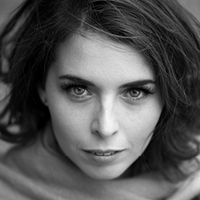
Margo Arsane – Dorabella
French mezzo-soprano Margo Arsane is a Scottish Opera Emerging Artist 2020/21, and also a member of the Lyon Opera Studio. She studied at the CNSMD Lyon, Munich’s University of Music and Performing Arts, London’s Guildhall School of Music and Drama, and the National Opera Studio. Among her prizes and awards, she won first prize at the 2013 Mozarteum Sommerakademie Wettbewerb, Special Prize at the 2014 Marmande International Singing Competition, and Young Hope Prize at the 2013 Concours International de Chant, Clermont-Ferrand.
Scottish Opera appearance: Opera Highlights Autumn 2020.
Operatic engagements include: Child L’enfant et les sortilèges (Lyon Opera); Smeraldina/Linette The Love for Three Oranges (Lorraine National Opera); Page of Herodias Salome (Paris Philharmonie); Zaida Il turco in Italia, Rosina The Barber of Seville (Scherzo Ensemble); Sesto (cover) Julius Caesar (Opera North); Climene/First Love Les amants magnifiques by Lully (Le Concert Spirituel); Cherubino The Marriage of Figaro (Dartington Festival); Mélisande (cover) Pelléas and Mélisande (Garsington Opera); Concepción L’heure espagnole (Festival Pentecôte en Berry).
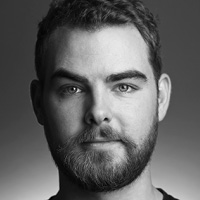
Arthur Bruce – Guglielmo
Scottish baritone Arthur Bruce is The Robertson Trust Emerging Artist 2020/21. He is a graduate of the Royal Conservatoire of Scotland’s Opera School, the Royal Northern College of Music, English National Opera’s Opera Works programme and Scottish Opera’s Connect Ensemble. He is a Britten-Pears Young Artist.
Scottish Opera appearances: Angus The Narcissistic Fish, Amadeus & The Bard, Opera Highlights Spring 2020 and Autumn 2020, Schaunard La bohème.
Operatic engagements include: title role Gianni Schicchi (RCS Opera School); Papageno The Magic Flute (Berlin Opera Academy); Zurga The Pearl Fishers (Edinburgh Grand Opera); Guglielmo (London Young Sinfonia); Wolfram Tannhäuser (Edinburgh Players Opera Group); Sam Trouble in Tahiti (RCS Opera School); Prince Yamadori Madama Butterfly (Bowdon Festival Opera).
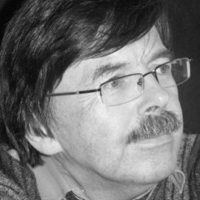
Derek Clark – Audio Producer
Derek Clark is Scottish Opera’s Head of Music. He was born in Glasgow and studied at the Royal Scottish Academy of Music and Drama, Durham University and London Opera Centre. He joined Welsh National Opera’s music staff in 1977 as a repetiteur and staff conductor, and joined Scottish Opera as Head of Music in 1997.
Scottish Opera appearances: Samson, The Magic Flute, Don Giovanni, The Marriage of Figaro, Così fan tutte, The Barber of Seville, The Italian Girl in Algiers, L'elisir d'amore, Fidelio, Rigoletto, Il trovatore, La traviata, Macbeth, Falstaff, Orpheus in the Underworld, The Pirates of Penzance, The Mikado, Carmen, Manon, La bohème, Tosca, Madama Butterfly, Eugene Onegin, Hansel and Gretel, The Burning Fiery Furnace, Inés de Castro, Five:15 (2008-10), The Lady from the Sea by Craig Armstrong – world premiere, Clemency by Sir James MacMillan – Scottish premiere, The Trial by Philip Glass – Scottish premiere. He also appeared with Jamie MacDougall in Lauder, and has devised 22 Opera Highlights/Essential Scottish Opera programmes.
Besides his work as accompanist, coach, arranger and composer, he has assisted Sir Roger Norrington and Richard Egarr at the Edinburgh International Festival and is Musical Director of the Dundee Choral Union.
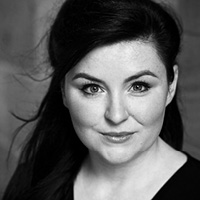
Charlie Drummond – Fiordiligi
Born in Lincoln, Charlie Drummond studied at King’s College London, the Opera School at the Royal Conservatoire of Scotland, and the National Opera Studio. She is also a Samling Young Artist, and was a Scottish Opera Emerging Artist 2019/20.
Scottish Opera appearances: Opera Highlights Autumn 2019, Dhia Iris, Belle The Narcissistic Fish.
Operatic engagements include: title role (cover) Anna Bolena (Longborough Festival Opera); Donna Anna Don Giovanni (British Youth Opera); Rosalinde Die Fledermaus, Fiordiligi, Countess The Marriage of Figaro, Mrs Julian Owen Wingrave, Eleonora Prima la musica e poi le parole by Salieri (RCS); Sofia Il signor Bruschino (Raucous Rossini); Serena Farage The Secretary Turned CEO by Danyal Dhondy – world premiere (Lucid Arts); Voice Simoon by Erik Chisholm – world premiere (Music Co-OPERAtive Scotland).
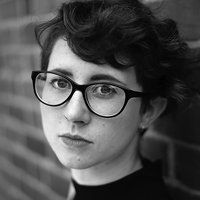
Roxana Haines – Director
Theatre and opera director Roxana Haines is Staff Director at Scottish Opera, where her previous productions have included Opera Highlights Autumn 2019 and Spring 2020, Fox-tot! and La bohème, as well as Puccini’s Edgar and Mascagni’s Silvano and Iris as part of the Opera in Concert series. She studied at Goldsmiths, University of London, and received an MA in Advanced Theatre Practice from London’s Royal Central School of Speech and Drama. She has also trained in a wide range of art forms, specialising in devised theatre and also working with puppetry, physical theatre, movement and circus. As an assistant director she has worked with companies including the Royal Opera, Opera Holland Park and Garsington Opera, as well as with the Aix-en-Provence Festival. As a revival director, Roxana has worked throughout Europe with the European Network of Opera Academies, touring the children’s show La petite flûte enchantée to Lisbon, Madrid and Luxembourg. With Scottish Opera she has been Assistant Director for Tosca, Kátya Kabanová and Ariadne auf Naxos. She also leads and facilitates workshops in music and drama, and has worked with the Scottish Opera Young Company Gateway for 14- to 17-year-olds.
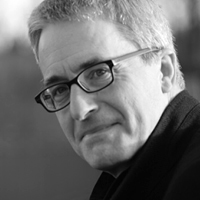
Jonathan Haswell – Film Director
Jonathan Haswell is a multi-camera director and producer of live music, theatre and other events for television, DVD, cinema and online. He worked in the classical music department of BBC Television for nearly 20 years, and since 2013 has worked for a variety of producers, independent companies and institutions. He filmed Scottish Opera's production of Anthropocene in 2019. Among the other recent productions and other events he has filmed are The Tales of Hoffmann, Norma, Werther, The Importance of Being Earnest and Boris Godunov (The Royal Opera Live); World Ballet Day (Royal Ballet); and Somme 100, Battle of Britain 75 Memorial Service and VJ Memorial Day (BBC Television).

Catriona Hewitson – Despina
Catriona Hewitson is a Scottish Opera Emerging Artist 2020/21. Born in Edinburgh, she studied at the City of Edinburgh Music School, Manchester’s Royal Northern College of Music and the Opera Studio of London’s Royal College of Music. Among her awards, she won the 2018 Ferrier Loveday Song Prize. She is a Samling Artist and a Philip and Dorothy Green Young Artist 2018-20.
Scottish Opera appearances: Voice 1 The Diary of One Who Disappeared, Opera Highlights Autumn 2020.
Operatic engagements include: Cis Albert Herring (The Grange Festival); Donna Rinaldo (Glyndebourne Touring Opera); Elsbeth (cover) Fantasio by Offenbach (Garsington Festival Opera); Sophie (cover) Werther (English Touring Opera); Susanna The Marriage of Figaro, Tytania A Midsummer Night’s Dream, Edwige Robinson Crusoe by Offenbach (Royal College of Music).
Fiona MacSherry – Repetiteur and Vocal Coach
Fiona MacSherry studied at the University of Southampton, London’s Guildhall School of Music and Drama, and the National Opera Studio. She has worked as a repetiteur for Garsington Opera, Castleward Opera, English Touring Opera, Wexford Festival Opera, the Almeida Festival, Den Anden Opera, the Buxton Opera Festival, Bremen Opera, Opera Rara, Opera North and Montepulciano Opera, among other companies. As a coach, she has taught at the Royal Conservatoire of Scotland, Manchester’s Royal Northern College of Music, Opera Akademiet Copenhagen and the Oslo National Academy of the Arts. She is a guest Professor at Copenhagen’s Royal Opera Academy and was Head of Music at Opera Akademiet before joining Scottish Opera in 2018. She has given masterclasses in Helsinki, Aarhus, Oslo, Copenhagen and Gothenburg.

Anthony Moffat – Leader, The Orchestra of Scottish Opera
Born in the Borders, Anthony Moffat trained at London’s Royal Academy of Music with the Armenian soloist and leader Manoug Parikian. As a member of the Da Vinci Trio, he has toured Scotland and appeared on BBC Radio 3. His career as orchestra leader began when he became co-leader of the Hallé, and he took up the post of Leader of The Orchestra of Scottish Opera in 2000. He has appeared as guest leader at Opera North, and with the Bergen Philharmonic Orchestra, BBC Concert Orchestra, BBC Scottish Symphony Orchestra, Bournemouth Symphony Orchestra, Royal Scottish National Orchestra, Royal Liverpool Philharmonic Orchestra, City of Birmingham Symphony Orchestra, National Symphony Orchestra of Ireland and the Orchestra of Welsh National Opera. He has also been invited to guest lead the BBC Symphony Orchestra. He plays a fine Italian violin made in 1695 by Giovanni Grancino.
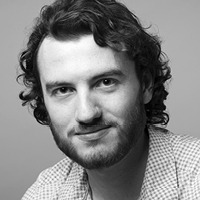
Michael Mofidian – Don Alfonso
Born in Glasgow, bass-baritone Michael Mofidian studied at the University of Cambridge and London’s Royal Academy of Music, and was a 2018-20 Jette Parker Young Artist at the Royal Opera House, Covent Garden.
Operatic engagements include: Narumov The Queen of Spades, Alcade The Force of Destiny, Angelotti Tosca, Zuniga Carmen, Minotauros Phaedra, Johann Werther, Bass 1 Death in Venice, Dr Grenvil La traviata, Judge/Chelsias Susanna, Deputy Don Carlo (Royal Opera House Covent Garden); Doctor Pelléas and Mélisande, Imperial Commissioner Madama Butterfly (Glyndebourne).
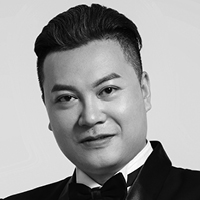
Shengzhi Ren – Ferrando
Chinese tenor Shengzhi Ren is a Scottish Opera Emerging Artist 2020/21. He studied at the Shanghai Conservatory of Music, and at London’s Royal Academy of Music and National Opera Studio. Among his prizes and awards, he won first prize in the 2016 International Singing Contest for Young People (Vocal) in Macau, first prize in the 2015 Golden Bell Awards, first prize in the 2010 National Singing Contest for Young People and Asian International Vocal Singing Contest (Hong Kong), and third prize and public award in the 2019 Neapolitan Masters Competition in Italy.
Among the operatic roles he has performed are Vaudémont Iolanta, Don José Carmen, Tamino The Magic Flute, Nemorino L’elisir d’amore and Borsa Rigoletto. He has also sung Prince in scenes from Cinderella (Opera North) and Rodolfo in scenes from La bohème (Welsh National Opera). Among his Royal Academy Opera Scenes performances are Belfiore Il viaggio a Reims, Fenton Falstaff, Ruggero La rondine, Alfredo La traviata and Rodolfo La bohème.
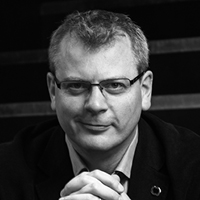
Stuart Stratford – Conductor
Stuart Stratford is Music Director of Scottish Opera. He studied conducting at the University of Cambridge with David Parry, and with Ilya Musin at the St Petersburg Conservatoire.
He joined Scottish Opera in 2015 as the Company’s sixth Music Director, joining a distinguished succession that originated with the Company’s founder, Sir Alexander Gibson.
For Scottish Opera, he has conducted productions of The Telephone, Tosca, Jenůfa, Rusalka, Pelléas and Mélisande, La bohème, Greek, Flight, Eugene Onegin, Kátya Kabanová, Anthropocene (world premiere), Breaking the Waves and the groundbreaking Pagliacci in ‘Paisley Opera House’.
He introduced the popular Sunday Series of lesser-known Operas in Concert, which has featured such titles as L’amico Fritz, Le villi, Iolanta, Francesca da Rimini, Aleko, Edgar, Silvano and Iris.
In the UK he has worked with Opera North, Welsh National Opera, Opera Holland Park, English National Opera, the Buxton Festival and Birmingham Opera, in repertoire ranging from Giovanni d’Arco to Satyagraha. He is known for his expertise in Russian and Czech music, and his passion for bringing opera to new audiences outside of a traditional theatre setting.
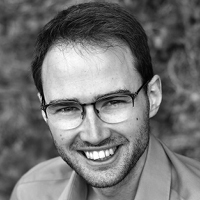
Jonathon Swinard – Chorus Master
Conductor and pianist Jonathon Swinard is Chorus Master at Scottish Opera and Head of Music at Garsington Opera. He studied at the University of Oxford and London’s Guildhall School of Music and Drama before beginning his career at Scottish Opera. He subsequently held the Alexander Gibson Choral Conducting Fellowship with the Royal Scottish National Orchestra Chorus before spending two years as Solorepetitor and Kapellmeister at Nuremberg’s State Theatre.
He has long been involved in the training of young singers. He spent six years on the Faculty of the Solti Accademia di Bel Canto and Lyric Opera Studio Weimar, and two years as the Artistic Director of the Scottish Opera Young Company, and he was Head of Music for the inaugural New Generation Festival in Florence. He is the Artistic Director of the Young Artists Programme at Garsington Opera and works regularly as a visiting vocal coach in the major UK music colleges.
The Orchestra of Scottish Opera
Leader Anthony Moffat
First Violins
Anthony Moffat
Frances Pryce †
Katie Hull § †
Terez Korondi
Timothy Ewart
Sharon Haslam
Sian Holding
Gemma O’Keeffe
Maria Oguren
Second Violins
Angus Ramsay * †
Giulia Bizzi
Liz Reeves
John Robinson
Helena Zambrano Quispe
Malcolm Ross
Michael Larkin
Violas
Lev Atlas * †
Rachel Davis
Mary Ward
Shelagh McKail
Alison Hastie
Ian Swift
Cellos
Martin Storey *
Marie Connell
Sarah Harrington
Aline Gow
Double Basses
Peter Fry *
Tom Berry †
Christopher Freeman
Flutes
June Scott **
Ewan Robertson
Oboes
Amy Turner * †
Kirstie Logan
Clarinets
Nicholas Ross *
Lawrence Gill †
Bassoons
Janet Bloxwich * †
Heather Brown
French Horns
Sue Baxendale * †
David Pryce
Natural Trumpets
Paul Bosworth *
Simon Bird †
Natural Timpani
Ruari Donaldson * †
Off-stage Percussion
Jay Allen *
Fortepiano
Fiona MacSherry
Orchestra Technicians
Brian Murphy
Noel Mann
Orchestra Coordinator
Heather North
§ Assistant Leader
* Section Principal
** Guest Section Principal
† Visiting Tutor to the Royal Conservatoire of Scotland
The Chorus of Così fan tutte
Chorus Master Jonathon Swinard
Sopranos
Catriona Clark
Zoe Drummond
Frances Morrison-Allen
Mezzo-sopranos
Karen Murray
Christine Sjölander
Grace Wain
Tenors
Raymond Armstrong
Christian Schneeberger
Fraser Simpson
Basses
Francis Church
Simon Hannigan
Jerome Knox
Production Team
Assistant Conductor
Jonathon Swinard
Music Librarian
Gordon Grant
Production Manager
Amy Wilson
Company Manager
Lynn Tonner
Deputy Company Manager
Kenny Boyd
Head of Wardrobe
Lorna Price
Costume Supervisor
Beth Hicks
Costume Assistant
Polly Russell
Wardrobe Mistress
Gloria del Monte
Hair and Make-up Supervisor
Alison Chalmers
Hair and Make-up Assistants
Natalie Hargreaves
Kerrie Scullion
Head of Electrics
Robert B Dickson
Lighting Supervisor and Programmer
Neil Foulis
Electrics and Audio Visual Chargehand
Barry McDonald
Lighting Chargehand
Andrew Burnside
Props Supervisor
Marian Colquhoun
Running Props Supervisor
Katie Todd
Head of Stage
Ben Howell
Deputy Head of Stage
Michele Altana
Assistant Head of Stage
Martin Woolley
Stage Flying Technician
Heather McKennan
Stage Technicians
Alex Barau
Niall Macaskill
Stage Manager
John Duncan
Deputy Stage Manager
Donald Ross
Assistant Stage Managers
Kieron Johnson
Marian Sharkey
Technical Producer
Matt Parkin (Stagecast Ltd)
Script Supervisor
Calum Wyllie
Film Editor
Antonia Bain
Audio Describer
Jonathan Penny
Audio Engineer
Cameron Crosby
Audio Chargehand
Rebecca Coull
Camera Operators
Wai-King Cheng
Phil Glenny
Ryan Blackwood
Rehearsal Camera Operator
Andy Brown
Video Technician
Sam McErlean
Photographer
James Glossop
With thanks to everyone in the Scottish Opera team involved in making this production: our full staff listing is here.
Our sincere thanks also go to all the staff and management at the Theatre Royal Glasgow for their kind support.
Support us
If you’ve enjoyed this production of Così fan tutte, and this digital programme, please help us to create the next Scottish Opera production by donating online today.